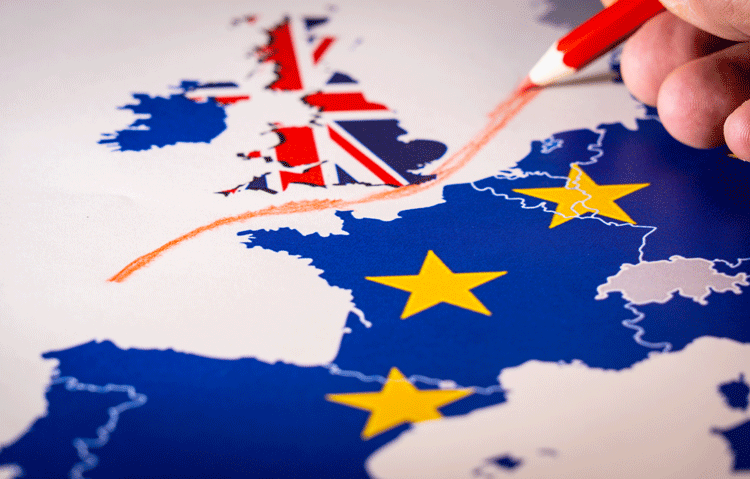Is the pharma sector ready for a ‘no-deal’ Brexit?
Posted: 25 April 2019 | Nikki Withers (European Pharmaceutical Review) | No comments yet
With the UK bracing itself for a ‘no-deal’ Brexit or some other outcome that has not yet been determined, pharma experts discussed the potential effect of Brexit on the supply chain and how to best prepare for it against the upcoming deadline.


Earlier this month, over 120 delegates from the pharma supply chain gathered for the 10th Pharmaceutical Industry Network Group (PING) Conference, held for the second successive year on Brexit and in conjunction with Ethical Medicines Industry Group (EMIG).
Highlights from the conference included likely regulatory impact on medicine trading, supply chain concerns, EU database access, management of tax implications, importance of Tier 2 sponsorship and secured, continuation of businesses.
EMIG’s Chair, Leslie Galloway, opened by saying: “Our friends at Westminster are very good at articulating what they don’t want, but no that they do want.”
He gave an overview of the different routes that Brexit may take, commenting on how “businesses, particularly healthcare businesses, thrive on certainty and the last almost three years have undermined their ability to invest and grow….hopefully soon, we will be able to deal with those challenges head on.” He also discussed stockpiling, saying, “we are in unchartered water – we’ve never been here before.”
As the conference unfolded, various pharma areas were addressed, with input from leading pharma experts.
Regulatory plan and changes
NSF Pharma Biotech‘s Executive Director Dr Peter Gough, presented the likely regulatory impact on the trade in medicines between the UK and EU post-Brexit, including necessary changes to marketing authorisations, the site of QC testing and QP certification, and the impact on clinical trials.
After explaining the different approaches that the UK and EU are taking in terms of mutual recognition, Dr Gough said: “It is hoped that regulators in UK and EU will put patients first and adopt pragmatic positions regarding the application and regulations.”
He pointed out we already have casualties from Brexit, including the loss of the EMA.
Research and development
Dr Jonathan Sheffield, Chief Executive of the Clinical Research Network at the National Institute for Health Research (NIHR), gave a very positive message. He said that work continues to increase regardless of Brexit. He commented, “There has been relentless investment in improving the life sciences research environment, which now makes UK the best place globally to conduct clinical trials of all phases. Brexit will not affect further improvements envisaged in Digital Health”.
He explained that the UK is one of the leading countries in R&D in the world. With over 650 clinical trials in motion, the UK is second only to the United States, and the leading country in Europe. The number of people participating in clinical trials has also increased in the UK, with participation increasing by 25 percent since 2010/11.
Sheffield said that rather than worrying about the impact of regulations and Brexit, we should embrace this. “We will have a research economy that can engage with a global research economy,” he said. “We need to stop using our hearts to make decisions and start looking at the facts,” he said. “We have a fear of regulation – Brexit is not the issue.”
Immigration
Despite Brexit uncertainty, the pharma and life sciences sector still relies heavily on highly skilled research and development roles, with a large proportion – around seven percent of the workforce – being sourced from EU countries and further afield. It is ever more imperative to prepare for the UK’s future. Tom Brett-Young, Head of VWV’s specialist Immigration team, stated, “For future planning, Tier 2 sponsorship is a key part of the immigration system…those without a sponsor licence should consider applying for one now, and those who already have one should ensure that it is fully compliant and not at risk of being revoked.”
Retail pharmacy and stockpiling
Gareth Jones, Head of Corporate Affairs at the National Pharmacy Association, said that medicine supply and shortage is worse than it has ever been before. He addressed Brexit concerns from a retail pharmacy perspective around what happens with the Falsified Medicines Directive, stockpiling, shortages and security issues, saying how “community pharmacists will do everything they can to support patients and maintain continuity of supply during Brexit, but as with other sectors there remain concerns about supply chains, availability of staff and access to EU databases.”
European perspective
Experienced Germany-based Professor Dr Christian Dierks of Dierks + Company provided an EU perspective, explaining how the German pharma industry saw Brexit. “The German view is that Brexit does not benefit patients, companies, etc.” he said. He gave a very warm expression of his and others’ feelings about the UK. It was very clear from his presentation that they wanted to have continued close relations. In an uplifting presentation, Christian Dierks commented, “pharma on both sides of the channel will suffer from Brexit, with or without a deal. We can mitigate these effects with resilience, pragmatism and cooperation…creating solutions that overcome regulatory burdens to focus on patient care.”
Parallel trade
Richard Freudenberg, Secretary-General of British Association of European Pharmaceutical Distributors (BAEPD), discussed parallel trade between the UK and Europe, concluding that “many business sectors are suffering from the uncertainty surrounding Brexit. Few, however, have had to endure the existential threat that parallel traders have experienced since the referendum. Now at least we have been able to establish from recent Government guidance that in virtually whichever political outcome results, we can look forward with security to the continuation of our business.”
Tax
VAT, customs and tax implications for trade with Europe and the rest of the world post-Brexit were also discussed, with Richard Turner and Alistair Winning from FTI Consulting, who said that we “need to react and respond to regulatory change. They highlighted that “the tax implications as a consequence of Brexit should, on the whole, be manageable. However, if there is a need to change the supply chain, it is important that the tax is considered at an early stage.”
Finally, Paul Gershlick, PING Chair and Partner and Head of Pharmaceuticals and Life Sciences sector at VWV, the law firm behind PING, commented: “There is no bigger issue facing everyone than Brexit. In light of the uncertainty and challenges, the conference provided much insight and information to pharma businesses. Given the current uncertain circumstances, the messages were encouraging, and we hope to see a bright future for pharma and life sciences in the UK and in co-operation with our European neighbours.”
Related topics
Big Pharma, Brexit, Clinical Trials, Distribution & Logistics, Drug Markets, Drug Supply Chain, Legal, Regulation & Legislation, Research & Development (R&D), Supply Chain









